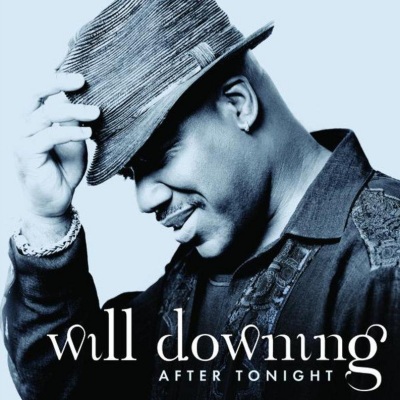
After Tonight
by Thom JurekLife has a way of throwing really slippery curveballs. Urban soul singer Will Downing released 2005's Soul Symphony on the GP imprint to great reviews and went on his way. The record did reasonably well for an independent. 2006 saw the release of his volume in the 20th Century Masters collection by former label Universal (an insult when somebody is still making vibrant music in the 21st). But in 2007 Downing was struck with polymyositis, a debilitating disorder that causes weakness in joints and muscles from neck, trunk, limbs, and can completely incapacitate anyone afflicted with it. The condition is treatable but affects everyone who gets it differently; it usually lasts from two to three years. Downing states in his liner essay that it took away his ability to function on his own, leaving him unable to use any of his limbs and that he recorded the majority of his vocals from a wheelchair. It's hard to believe. From the slippery nocturnal cinematic funk in "Will's Groove" to the gorgeous "After Tonight," a sexy mid-tempo groove ballad with a hook to swoon for a couple of tracks later, it's clear from the outset that Downing lost none of his vocal power and his unique touch with the sultry in soul. Produced by Downing, longtime bandmate Rex Rideout, and Noel Goring, the disc is a very solid collection of new soul tunes with, of course, love and sensuality as their central themes with one exception: "God Is Amazing." There are a couple of fine guest spots here, too. "Lover's Melody" features killer vibes work by Roy Ayers -- including three fine solo breaks -- and excellent backing and harmony vocals by Lauren Evans and Mabvuto Carpenter. Smooth jazz sax great Gerald Albright jumps in on "No One Can Love You More" with excellent interplay between him and drummer Michael White. In addition, Kirk Whalum makes it happen with his horn on both "All I Need Is You" and a fine reading of Bill Withers' "You Just Can't Smile It Away." The craft on this set is not only consistent, but it's even a notch above Soul Symphony, despite the personal diversity experienced in its recording. The proof is in the writing as well as the execution, as Downing is back to writing a lot, and here he co-writes all but a pair; the seamless transitions between cuts are a testament to his continued power as a champion purveyor of quiet storm soul. (Just a thought: if Downing ever gets the bug again, it'd be great to get an album full of those infectious, tight-groove smooth jazz tunes à la "Will's Groove." He'd gain an entirely new audience probably without losing his old one.)
